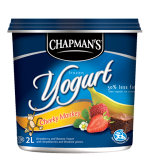David Baxter PhD
Late Founder
Prebiotics to Reduce Anxiety
by Jerry Kennard, HealthCentral
January 09, 2015
You?ve no doubt seen those probiotic yogurts and health drinks and maybe you?ve tried a few? The notion that probiotics are good for us is extensively promoted but how many of us are familiar with the idea of prebiotics? Before I get to the link between our gut and our emotions I?m going to outline a few of the key differences between pre and probiotics.
Probiotics are most familiar to us, no doubt because they have been extensively promoted as aids or supplements to good bacteria that resides within the human gut. Probiotics are however fairly delicate and quite vulnerable to stomach acid and heat. The evidence for the effectiveness of probiotics remains a little sketchy but there are indications that they help some people with irritable bowel syndrome and other irritations of the gut. Probiotics may give some protection from harmful bacteria and help with digestion. Prebiotics are only found in plants and vegetables and unlike probiotics they move through the digestive system unchanged but help to enrich the good bacteria that already exists within the gut.
Recently, scientists at Oxford University in the UK, revealed the effect of prebiotics on human behavior. People with stress disorders or depression often have symptoms relating to digestion and so the Oxford team set out to investigate whether prebiotics have any positive effects on emotions. Over a three-week period volunteers were given either a placebo, a prebiotic called B-GOS or the prebiotic FOS. When emotional processing was tested it was discovered that those who consumed B-GOS paid less attention to negative words and much more to positive words. These same volunteers had reduced levels of the stress hormone cortisol compared with the start of the experiment. B-GOS is just one type of prebiotic but it is said to stimulate the growth of good bacteria in the gut more strongly.
The research team was also interested in the dampening effect of prebiotics on cortisol levels. They argue that prebiotics should be considered as adjunct therapies for anxiety and depression. Not all prebiotics are the same however. The volunteers who consumed the prebiotic FOS revealed no differences in emotional processing and neither were cortisol levels affected. It?s an intriguing outcome and one that looks likely to be pursued over the coming years. Pre and probiotics can also be purchased as dietary supplements.
by Jerry Kennard, HealthCentral
January 09, 2015
You?ve no doubt seen those probiotic yogurts and health drinks and maybe you?ve tried a few? The notion that probiotics are good for us is extensively promoted but how many of us are familiar with the idea of prebiotics? Before I get to the link between our gut and our emotions I?m going to outline a few of the key differences between pre and probiotics.
Probiotics are most familiar to us, no doubt because they have been extensively promoted as aids or supplements to good bacteria that resides within the human gut. Probiotics are however fairly delicate and quite vulnerable to stomach acid and heat. The evidence for the effectiveness of probiotics remains a little sketchy but there are indications that they help some people with irritable bowel syndrome and other irritations of the gut. Probiotics may give some protection from harmful bacteria and help with digestion. Prebiotics are only found in plants and vegetables and unlike probiotics they move through the digestive system unchanged but help to enrich the good bacteria that already exists within the gut.
Recently, scientists at Oxford University in the UK, revealed the effect of prebiotics on human behavior. People with stress disorders or depression often have symptoms relating to digestion and so the Oxford team set out to investigate whether prebiotics have any positive effects on emotions. Over a three-week period volunteers were given either a placebo, a prebiotic called B-GOS or the prebiotic FOS. When emotional processing was tested it was discovered that those who consumed B-GOS paid less attention to negative words and much more to positive words. These same volunteers had reduced levels of the stress hormone cortisol compared with the start of the experiment. B-GOS is just one type of prebiotic but it is said to stimulate the growth of good bacteria in the gut more strongly.
The research team was also interested in the dampening effect of prebiotics on cortisol levels. They argue that prebiotics should be considered as adjunct therapies for anxiety and depression. Not all prebiotics are the same however. The volunteers who consumed the prebiotic FOS revealed no differences in emotional processing and neither were cortisol levels affected. It?s an intriguing outcome and one that looks likely to be pursued over the coming years. Pre and probiotics can also be purchased as dietary supplements.


